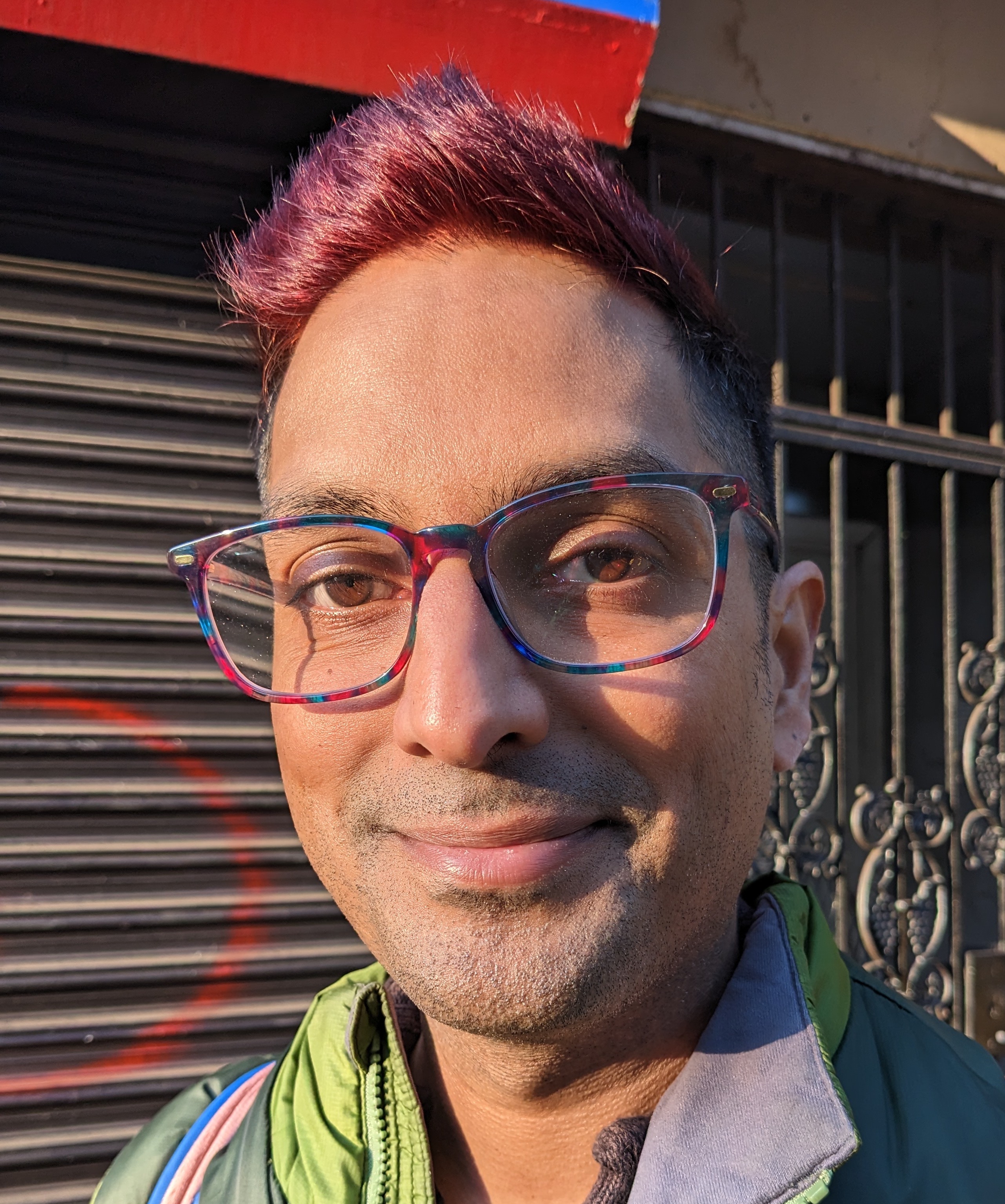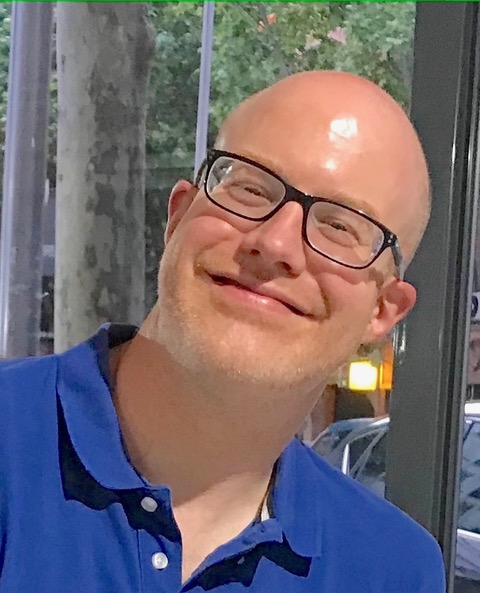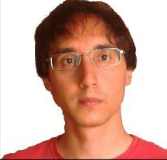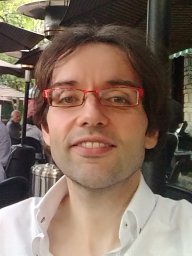Machine Learning, Information Theory, Signal Processing and Communications Workshop (MISC'24)
We are pleased to announce MISC'24, the Spanish Workshop on Machine Learning, Information Theory, Signal Processing, and Communications. In Madrid on July 2, 2024, MISC'24 expands upon the Signal Processing, Information Theory, and Communications (SIC) Workshop to include the Machine learning field.
The technical program features speakers of renowned international prestige in these fields. Remarkably, the event will host a
distinguished lecturer from the Information Theory Society. In the afternoon, we will have a poster session for Ph.D. students, postdocs, and researchers in the fields above to foster interaction and potential new collaborations. We encourage all participants to
contribute.
Registration will be open until June 21, 2024. Please fill out the form:
https://forms.office.com/e/4YpXNajrQy
Moreover, we will hold a welcome and networking dinner on July 1st to promote social interaction among participants. Each participant would cover the costs, with an estimated cost between 40 and 50 EUR. Please, let us know your interest in attending the dinner by
answering the corresponding question within the registration form.
Visit our website for more details:
https://sites.google.com/view/misc24workshop/home
Feel free to share the event details with potential interested participants.
We look forward to your participation in this event.
Kind regards,
Grace Villacrés (URJC), Alejando Lancho (UC3M), Mihaela I. Chidean (URJC)
MISC'24 Co-Chairs
Date and Time
Location
Hosts
Registration
-
 Add Event to Calendar
Add Event to Calendar
- Calle Quintana 21
- Madrid, Madrid
- Spain 28008
- Building: Universidad Rey Juan Carlos
- Room Number: Salón de Actos
- Click here for Map
- Contact Event Host
- Co-sponsored by Universidad Rey Juan Carlos, Universidad Carlos III de Madrid
- Survey: Fill out the survey
Speakers
Anand D. Sarwate of Rutgers University
Learning with Structured Tensor Decompositions
Many measurements or signals are multidimensional, or tensor-valued. Vectorizing tensor data for statistical and machine learning tasks often results in having to fit a very large number of parameters. Using tensor decompositions to model such data can give a flexible and useful modeling framework whose complexity can adapt to the amount of data available. This talk will introduce classical decompositions (CP, Tucker) as well as more recent ones (tensor train, block tensor decomposition, and low separation rank) and show how they can be used to learn scalable representations for tensor-valued data and make predictions from tensor-valued data. Time permitting, we will describe applications in federated learning as well as open problems for future research.
Note: This talk does not assume the audience has prior familiarity with tensor algebra.
Biography:
 |
Dr. Anand D. Sarwate received his Ph.D. in electrical engineering from the EECS Department at UC Berkeley. He is currently an Associate Professor at Rutgers and was previously a Research Assistant Professor at TTI Chicago and a postdoc at the ITA Center at UCSD. His research interests include information theory, machine learning, signal processing, optimization, and privacy and security. Dr. Sarwate is a Distinguished Lecturer of the IEEE Information Theory Society for 2024--2025 and is on the Board of Governors of the IEEE Information Theory Society. |
Email:
Address:CoRE Building Rm. 517 Busch Campus Rutgers University Piscataway, , Piscataway, NJ, United States, 08854-8058
Tobias Koch of Universidad Carlos III de Madrid
The Divergence Test for Universal Hypothesis Testing: Beating the Generalized Likelihood Ratio Test
Universal hypothesis testing refers to the binary statistical hypothesis testing problem where n independent and identically distributed random variables are either distributed according to the null hypothesis P or the alternative hypothesis Q, and only P is known. The generalized likelihood ratio test (GLRT) for this problem is the Hoeffding test, which accepts the null hypothesis if the Kullback-Leibler (KL) divergence between the empirical distribution of the observed random variables and the null hypothesis is below some threshold. In this work, we propose the divergence test, which replaces the KL divergence in the Hoeffding test by an arbitrary divergence. For this test, we derive a second-order asymptotic expansion for the probability of a false-negative when the probability of a false-positive is bounded by some fixed value (Stein’s regime). We demonstrate that when the divergence belongs to the class of invariant divergences (which includes the Rényi divergence and the f-divergence), the divergence test has the same second-order performance as the Hoeffding test. In contrast, when the divergence is non-invariant, the divergence test may outperform the Hoeffding test for some alternative hypotheses. In particular, we observe this phenomenon when the divergence is the squared Mahalanobis distance. We conclude that a hypothesis test that accepts the null hypothesis if the squared Mahalanobis distance between the empirical distribution of the observed random variables and the null hypothesis is below some threshold may outperform the GLRT. Potentially, this behavior could be exploited by a composite hypothesis test with partial knowledge of the alternative hypothesis by tailoring the squared Mahalanobis distance to the set of possible alternative hypotheses.
This is joint work with K.V. Harsha (Gandhi Institute of Technology and Management, Hyderabad, India) and Jithin Ravi (Indian Institute of Technology Kharagpur, India).
Biography:
 |
Dr. Tobias Koch received the M.Sc. (Hons.) and Ph.D. degrees in electrical engineering from ETH Zurich, Switzerland, in 2004 and 2009, respectively. From June 2010 until May 2012, he was a Marie Curie Intra-European Research Fellow with the University of Cambridge, UK. He was also a Research Intern at Bell Labs, Murray Hill, NJ, USA, in 2004, and the Universitat Pompeu Fabra, Barcelona, Spain, in 2007. He joined the Universidad Carlos III de Madrid, Spain, in 2012, where he is currently an Associate Professor. His research interests are in digital communication theory and information theory. Dr. Koch received a Starting Grant from the European Research Council (ERC), a Ramón y Cajal Research Fellowship, a Marie Curie Intra-European Fellowship, a Marie Curie Career Integration Grant, and a Fellowship for Prospective Researchers from the Swiss National Science Foundation. He further received a medal of the 2018 Young Researchers Award “Agustín de Betancourt y Molina” by the Royal Academy of Engineering of Spain. He served as the Vice Chair for the Spain Chapter of the IEEE Information Theory Society from 2013 to 2016, and he served as the Chapter’s Chair from 2020 to 2023. Since 2020, he has been serving as an Associate Editor for Communications and Shannon Theory for the IEEE Transactions on Information Theory. |
Email:
Address:Avenida de la Universidad, 30, Universidad Carlos III de Madrid, Leganés, Spain, 28911
Daniel Hernández-Lobato of Universidad Autónoma de Madrid
Parallel predictive entropy search for multi-objective Bayesian optimization with constraints
Biography:
 |
Dr. Daniel Hernández-Lobato obtained a Ph.D. and an M.Phil. in Computer Science from Universidad Autónoma de Madrid, Spain, in January 2010 and June 2007, respectively. His Ph.D. thesis received the award for the best thesis on Computer Science defended during that academic year in that institution. Between November 2009 and September 2011, he worked as a post-doc researcher at Université catholique de Louvain, Belgium. There he had the opportunity to collaborate with Prof. Pierre Dupont and Prof. Bernard Lauwerys in the identification of biomarkers for the early diagnosis of arthritis. In September 2011, he moved back to Universidad Autónoma de Madrid, and since January 2014 he has worked there as a Lecturer of Computer Science. His research interests are mainly focused on the Bayesian approach to machine learning, including topics such as Bayesian optimization, kernel methods, Gaussian processes, and approximate Bayesian inference. He participated, as an invited speaker, in the workshop on Gaussian process approximations, in 2015 and 2017, and the Second workshop on Gaussian processes at Saint-Étienne, in 2018. He was also one of the two main organizers of the Machine Learning Summer School 2018, at Universidad Autónoma de Madrid |
Address:Calle Francisco Tomás y Valiente 11, Universidad Autónoma de Madrid, Madrid, Spain, 28049
Antonio G. Marqués of Universidad Rey Juan Carlos
Tensor-low rank models for reinforcement learning
Biography:
 |
Dr. Antonio G. Marques received the Telecommunications Engineering degree and the Doctorate degree, both with highest honors, from Carlos III University of Madrid, Spain, in 2002 and 2007, respectively. In 2007, he became a faculty of the Department of Signal Theory and Communications, King Juan Carlos University, Madrid, Spain, where he currently develops his research and teaching activities as a full professor and director of the Data Science and Signal Processing for Networks research group. From 2005 to 2015, he held different visiting positions at the University of Minnesota, Minneapolis. In 2015, 2016 and 2017 he was a visitor scholar at the University of Pennsylvania, Philadelphia. His current research focuses on signal processing, machine learning, data science and artificial intelligence over graphs, and nonlinear and stochastic optimization of wireless and transportation networks, areas where he has published more than 150 papers. Dr. Marques has served the IEEE in a number of posts, including as an associate editor and the technical/general chair of different conferences. Currently, he is a Senior Area Editor of the IEEE Trans. on Signal Process., the Technical Chair of Asilomar 2024 and the General Co-Chair of CAMSAP 2025. His work has been awarded in several journals, conferences, and workshops, with recent ones including the IEEE SPS IEEE Y.A. Best Paper Award 2020, and CIT 2021. He is the recipient of the ``2020 EURASIP Early Career Award'' and a member of IEEE, EURASIP, and the ELLIS society. |
Email:
Address:Camino del Molino S/N, Universidad Rey Juan Carlos, Fuenlabrada, Spain, 28943
Agenda
https://sites.google.com/view/misc24workshop/program

